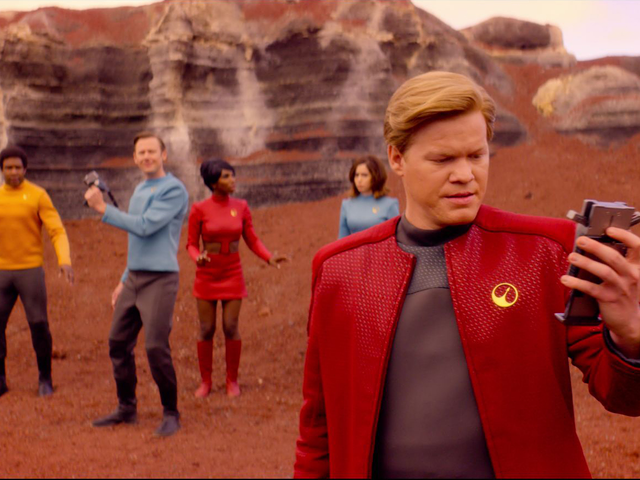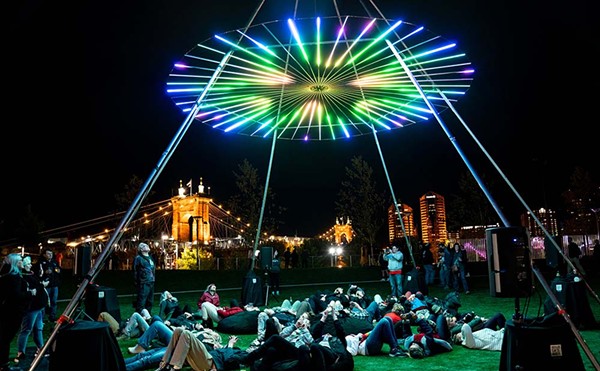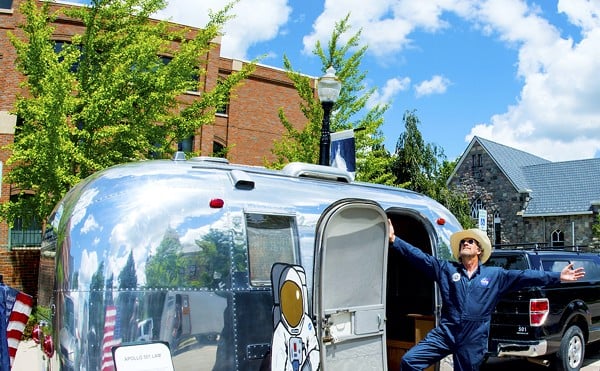Why is now the right time for a feature film about the infamous incident that turned figure skater Tonya Harding into a cultural villain? In 1994, two men associated with Harding attacked skater Nancy Kerrigan, hoping an injury would keep her out of the Winter Olympics. Afterward, the U.S. Figure Skating Association permanently banned Harding for hindering the prosecution of the men.
I suppose the simple answer to “why now” would be that I, Tonya’s director Craig Gillespie (Lars and the Real Girl) and screenwriter Steven Rogers (Love the Coopers) thought the time appropriate. They’ve made a film that is a gonzo piece of biography, daring to see Harding (Margot Robbie) as a human being worthy of redemption.
The film begs us to dig deeper than its gimmicky setup. On the surface, I, Tonya isn’t aiming to be anything other than a true crime exposé, a hatchet job in the reality-TV mode about a bunch of low-class boobs. But it slowly becomes clear that Gillespie and Rogers (and, even more so, a fearlessly dedicated Robbie) refuse to make Harding the butt of the joke that our culture has been making about her since 1994.
From the start, the film plainly presents Harding as a person trapped in an impossible set of circumstances. As a kid, played with a remarkable degree of common sense by McKenna Grace, Harding endures the trials of not only being poor and trying to break through in a high-class sport, but also of trying to survive the abuse (that we shouldn’t merely dub as “tough love”) given out by her mother LaVona (Allison Janney). LaVona chases Harding’s father away with a look so withering it could depress a thriving economy.
Harding is never allowed to form friendships with other skaters, since her mother sees them as competitors on the ice. And making matters worse, Harding never hears a kind word from her mom.
Clearly, LaVona understands that Harding has the opportunity to be something special. But there’s no proof that champions are made from beating weakness out of them. In a similar fashion, the skating community, which bestows style points for meaningless elements like expensive outfits and perfect make-up, repeatedly drives home the message that Harding, despite having undeniable ability, will never belong to this exclusive club.
With love and acceptance in short supply, Harding falls under the spell of Jeff Gillooly (Sebastian Stan), a rube cruising the local Portland, Ore. skating rink looking for a girlfriend. Gillooly eventually turns abusive, which is nothing new for Harding.
Through it all, though, skating somehow continues to flicker faintly on the margins. Harding soldiers on, practicing and competing, keeping herself in the game. And talent, for a brief moment, opens a door, when she becomes the first American woman to complete two triple axels in single competition. (She was also the first to complete a triple axel in combination with a double toe loop, according to Wikipedia.)
That’s an achievement that would seem to announce to the skating world a talent that could no longer be ignored. That, in turn, should guarantee her a coveted spot in the hearts and minds of the elites who had denied her for so long.
But, as I, Tonya presents it, Harding was sold a bill of goods like so many striving disenfranchised outsiders who hunger for acceptance. She finds that the door is still barred; she was wrong to believe it would open because of her talent and accomplishments.
There is no excuse for what happens next — in both the film and in her real life. The assault on Kerrigan by Gillooly and his incompetent associates is an outrage, and Harding certainly deserves her own personal share of the blame for not accepting responsibility for her actions. Still, I, Tonya makes the case that society and life itself didn’t do her any favors.
Gillespie and Rogers have crafted a funhouse mirror of America — the film works as contemporary allegory. Her story is, in crucial aspects, representative of an American electorate who listen to the fake promises of men with money and power. The system is a rigged game and maybe it’s time for all of us to recognize that fact. (Now playing.) (R) Grade: B+






